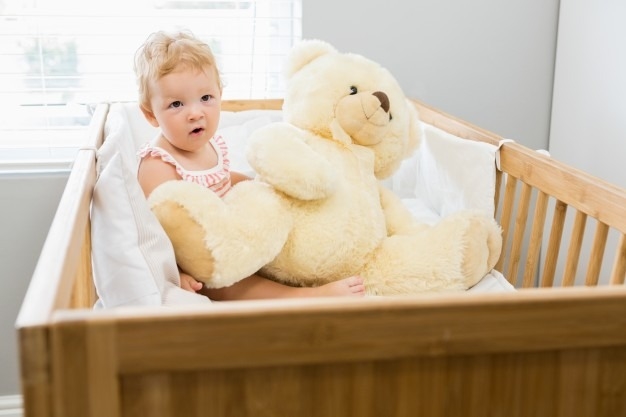
When Do Babies Start Speaking?
15 Feb 2019 | 4 min Read
Priyanka chhabria
Author | 48 Articles
Being first-time parents to a newborn is accompanied by a lot of excitement and at the same time constant waiting and desperation for when the baby will reach a certain milestone like smiling, holding hands, crawling and so on. But one thing that tops the list is, “when he/she will say something” or “when he/she will say papa mama”. The wait seems long amidst all the cooing and nonsense babbling and mostly ends when you have given up all the hopes. Suddenly the baby calls out mama or something similar.
When do babies start speaking?
It does not start suddenly in one day. There are many small speaking milestones a baby keeps on covering.
Birth to 3 months
Communication is in the form of crying only. Whether it is discomfort, hunger or needing someone beside them, baby cries in different tones and pitch to convey their needs.
4 months to 6 months
This is one of the most exciting phases with babies as they start doing activities while exploring their body. Baby starts cooing and you may hear oohs and aahs very often. Baby produces sounds like mama, papa, dada, yaya repeatedly. These are easy sounds produced while experimenting with tongue, teeth, palate, and vocal cords. You will hear all sorts of funny noises in this phase.
7 months to 12 months
This is the babbling phase for babies. They understand what you are speaking and are smart enough to change the tone of their blurting random sounds for conveying themselves. You can hear bigger variety of sounds, facial expressions accompanying their mumbling voice and pauses in their babble. They are very expressive and understand most of the things you say.
13 months to 18 months
Your kid will be able to express himself using small words. You can hear clear pronunciations for two or three syllable words. Babies understand what we are speaking and learn by mocking our sentences.
19 months onwards
Your child understands much more than he can say. Kids develop a good understanding of expressing their emotions by changing tone and pitch of their voice. They talk using small sentences with 3 to 4 words and gradually become pro in talking around 2 years of age.
How can I help my baby’s speech and language development?
Speaking comes naturally to babies and you can’t expect them to follow a fixed timeline. Some babies catch up fast and some take a little more time. So if your baby is lagging behind the ideal timeline, there is nothing to worry about, don’t overwhelm your kid by telling him repeatedly to speak up.
There are certain things you can do that will aid the speech development:
- Engage in conversations with the baby. Talk to your baby as if she is able to understand everything you are speaking. This does not mean that you have to chatter all day. Involve her with simple questions and sentences. Use simple and clear words as they learn what they hear.
- Use different tones and syllables when you talk so that he will try to imitate you and learn new sounds.
- Point out things and people while you speak of them. Like when baby says papa, point to her dad and say. “yes, that is papa.”
- Communicate in languages you want your baby to learn. This is the best time to talk to them in your mother tongue as other languages can be learned in school, but only you can teach her your mother tongue.
- Reading to your child is a great way to expose him to new vocabulary, the way sentences are put together, and how stories flow. Use the change of tone to express the changes in the plot of stories for her better understanding.
- Sing to your baby and this will be one of the most fun things to bond over while learning.
Any red flags to watch out for?
As long as your baby’s chatter is progressing and she’s engaging with you and others, there’s likely no need to worry. But if her speech and language development stop or regress at any point, if she’s not babbling and making eye contact or gestures, or if words don’t emerge by the time she’s 15 months, schedule a conversation with your pediatrician and a speech-language pathologist.
Also read: Does your Child need Speech Therapy?
A


Related Topics for you
Suggestions offered by doctors on BabyChakra are of advisory nature i.e., for educational and informational purposes only. Content posted on, created for, or compiled by BabyChakra is not intended or designed to replace your doctor's independent judgment about any symptom, condition, or the appropriateness or risks of a procedure or treatment for a given person.
